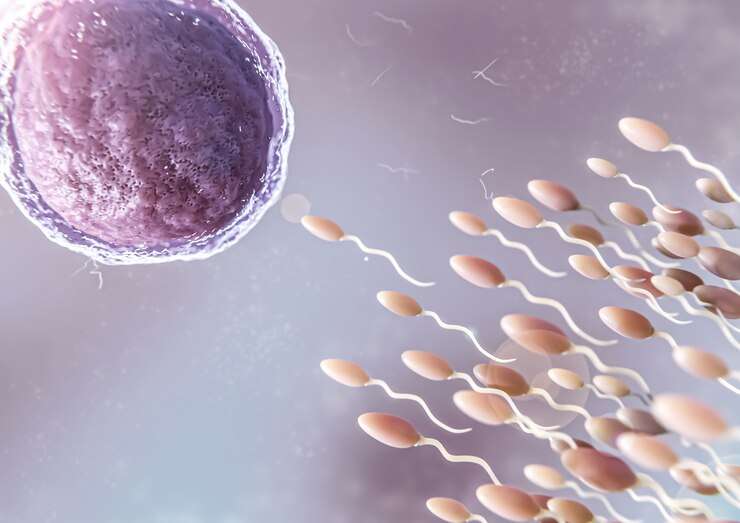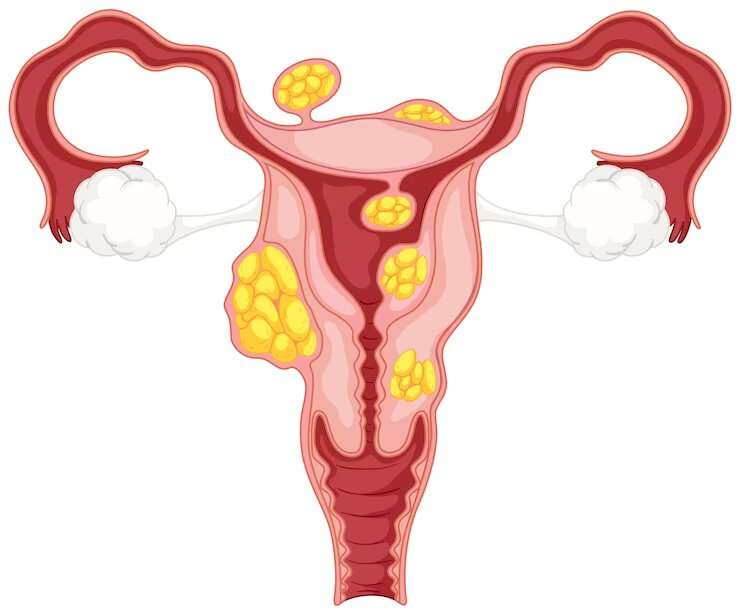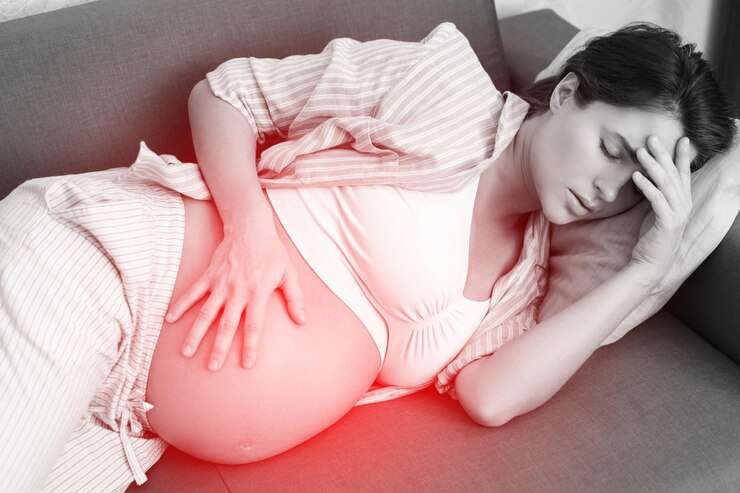Did you know which is the best sleeping position after IVF and how could it make a difference? You know that every little thing can change your chances of successful embryo implantation if you are going through the IVF process. Many things need to be thought about, such as diet, exercise, and how to deal with stress.
As an IVF specialist, some of my patients have asked me about the sleeping position after embryo transfer, and I have to think about it for a while before I can give them the best advice.
I’ll talk about what I know about the best ways to sleep after IVF and why they’re important in this article. These tips and tricks can help you reach your goals, whether they’re to improve your chances of success or get a good night’s sleep.
The Most Comfortable and Best Sleeping Position After IVF
Resting on the Left Side: It is highly recommended to sleep on your left side after IVF. This position maximizes blood flow to the uterus, which is crucial for implantation. It also reduces abdominal pressure and allows the embryo to adhere to the uterine lining effectively.
Tips for Comfortable Left-Side Sleeping:
- Use a Pillow: Place a pillow between your knees to align your hips, reduce lower back strain, and increase comfort.
- Pregnancy Cushion: A pregnancy cushion can support your legs and stomach, enhancing comfort and blood flow during sleep.
- Reclining Position: Alternatively, a reclined position can also be beneficial. It keeps your head and abdomen elevated, promoting smooth blood circulation and reducing pressure on your back.
Importance of Proper Sleep After IVF
Getting sufficient and quality sleep after IVF is vital for early pregnancy and embryo implantation:
- Reduced Physical Activity: After an embryo transfer, your uterus needs time to rest and recover. Minimizing physical activity can prevent uterine damage and support implantation.
- Stress Reduction: Rest lower stress hormones, which can negatively affect implantation.
- Enhanced Blood Flow: Resting promotes better blood flow to the uterus, providing the embryo with essential nutrients and oxygen.
- Lower Miscarriage Risk: Bed rest helps the embryo attach to the uterine lining without stress or movement, reducing the risk of miscarriage.
Does the Way You Sleep after IVF Change the Success Rate?
Not much research has been done on how different sleeping positions after IVF might affect how well IVF (in vitro fertilization) treatments work. Still, there is some evidence that some sleep positions may be good for fertility and reproductive health.
A 2015 study in the journal Fertility and Sterility found that women who slept on their left side were more likely to get pregnant without trying to. This was not the case for women who slept on their right side or back. If you sleep on your left side, you may get more blood to your uterus, which can help the embryo stick better.
The position of the person sleeping after IVF was not looked at in this study. But women who are going through IVF treatment can also benefit from sleeping on their left side.
Getting enough rest in a supportive and comfortable bed can help lower stress and improve health. That could help the success of IVF even more.
Why is Sleeping on Your Left Side Best after Embryo Transfer?
Sleeping on your left side may help the blood flow to your uterus and make you feel more relaxed. The aorta is on the left side of the body. It is the main artery that brings blood to the lower body. It is better for the placenta and the developing baby to get blood when the woman sleeps on her left side.
The vena cava is a large vein that brings blood from the lower body to the heart. Sleeping on your left side can help ease pressure on this vein. It makes the blood flow better all over the body. This can help the woman relax and help the embryo grow healthily.
Explain how getting enough bed rest can help with embryo implantation and the early stages of pregnancy.
After transferring an embryo, getting enough rest in bed can help the embryo implant and start a pregnancy. Because of these things:
Lessens physical activity:
After an embryo transfer, the uterus needs time to heal and recover. Exercise can harm the uterus, which could prevent the egg from implanting. So, proper rest in bed is very important.
Lessens stress:
Resting and relaxing can lower stress hormones, which can make it harder for the egg to implant.
Increases blood flow:
Taking it easy and not moving around helps blood flow to the uterus. Having more blood flow helps the embryo get more oxygen and nutrients.
Bed rest after IVF:
lets the embryo connect to the lining of the uterus without stress or activity. This lowers the risk of miscarriage. It lowers the chance of having a miscarriage. The embryo is more likely to grow and develop if it can stick to the lining of the uterus and get blood. This will help the pregnancy last longer.
Additional Tips for Better Sleep After IVF
Getting a good night’s sleep after transferring an embryo is very important for helping you relax and creating the best conditions for the embryo to implant. Here are some recommended sleeping positions after IVF at night:
Keep your bedroom quiet:
A quiet bedroom can help you relax and sleep well. Try to keep it between 15°C and 67°F (60°C to 74°C). Block out light from outside with blackout curtains or blinds to make your room dark for sleep. To create a relaxing atmosphere, buy a dimmer switch or use low-wattage bulbs.
Stay away from caffeine and alcohol:
These substances can make it hard to sleep, so it’s best to stay away from them before bed.
Use techniques to calm down:
For example, do some deep breathing, meditation, or gentle yoga. These methods can help you calm down and relax. Do these things to help create the best conditions for the embryo to implant.
Use comfortable bedding:
Comfortable bedding can help you sleep better. Pick bedding that is soft and airy. You might need to use pregnancy pillows to support your body, head, and neck.
Get enough sleep:
Make sure you go to bed and wake up at the same time every day. The internal clock in your body will work better, and you’ll sleep better at night.
Do not use electronics in bed.
Electronics like smartphones and tablets give off blue light. It might make it hard to sleep. You should try not to use these devices in the hours before bed.
Stay hydrated:
Staying hydrated can help create the best conditions for the embryo to implant. It also helps embryos grow and develop normally. But to avoid getting up in the middle of the night, it’s best not to drink a lot of water before bed.
Conclusion
Finally, picking the right position to sleep in after IVF treatment might increase the chances of a successful embryo. People who are pregnant should sleep on the left side because it helps get more blood to the uterus and may help the embryo stick.
Keep in mind that the way you sleep is not the only thing that affects how well your IVF works. IVF success is also affected by things like age, reproductive health, and way of life.
Remember to carefully follow what your healthcare provider tells you to do. Rest enough during the time after the embryo transfer. Getting enough restful sleep is very important for a healthy pregnancy after IVF.
FAQs About Sleeping After IVF
Can lack of sleep affect hormone levels during IVF?
Yes, poor sleep can increase stress levels, potentially impacting hormone balance. Prioritize good sleep for overall health.
How to Sleep After Embryo Transfer?
Sleeping position after embryo transfer is crucial for your comfort and the procedure’s success. Here are some tips to help you rest easily:
- Choose a Comfortable Position
- Use Supportive Pillows
- Keep a Relaxing Bedtime Routine
- Maintain a Cool, Dark Environment
- Avoid Heavy Meals and Caffeine
- Stay Hydrated, but Limit Fluids Before Bed
- Follow Your Doctor’s Advice
Following these tips can create a restful environment that supports your body and the embryo during this crucial time. If you have any concerns or experience discomfort, don’t hesitate to contact your IVF doctor for further guidance.
Is there a recommended way to sleep during the two weeks after IVF?
While there’s no strict rule, comfortable sleeping positions and avoiding strenuous activities are generally advised.
Can I use a heating pad to help me sleep after IVF?
Using a heating pad on a low setting for short periods is usually safe, but consult your doctor for personalized advice.
Do stress and lack of sleep affect IVF success rates?
Chronic stress can indirectly affect IVF outcomes. Focus on stress management and quality sleep for better results.
For personalized advice and support throughout your IVF journey, visit Ritu IVF Fertility Center. Our experienced team is dedicated to helping you achieve your dream of parenthood.






